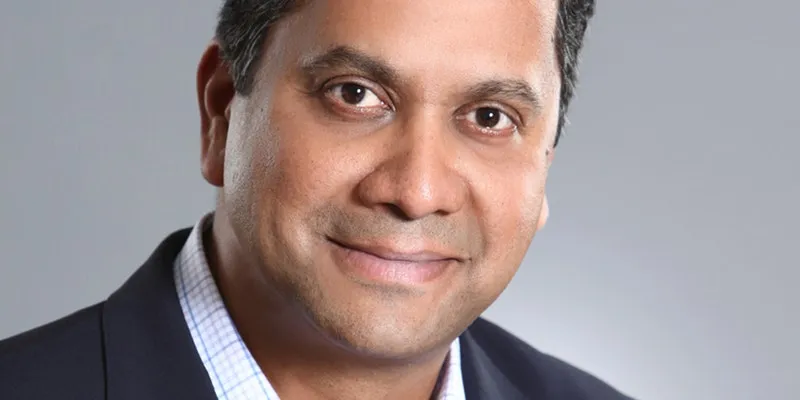Why digital transformation matters for biz: HCL's Anand Birje throws light
Digital transformation is not just the future; it is happening right now. In an interaction with YourStory, HCL’s Anand Birje explains why it is the largest business opportunity for IT Services companies.
Anand Birje, the Head of Digital and Analytics at HCL Technologies drives the practice’s overall growth and services strategy, including global corporate development, strategic partnerships, and next-generation services. At the centre of digital transformation that we are witnessing at the moment is data and its outcomes, which is what Anand wants to bring to the table for enterprises.
With over 20 years of industry experience across IT applications, infrastructure, and cloud, Anand has driven major acquisitions and investments for HCL in the US and Europe. He has played a key role in shaping the company’s organic and inorganic strategies for ITO and digital services.

Anand Birje of HCL
In a recent interaction with YourStory at Santa Clara, Bay Area, Anand spoke about the future of IT services and how it is becoming more of an intellectual property business. He explains why he meets several startups every month, as these are young companies that will scale globally and become possible acquisitions in the future.
Edited excerpts of the interview:
YourStory: There is a lot of talk surrounding digital transformation. Where are enterprises really heading with it in the new decade?
Anand Birje: Digital transformation is happening everywhere, from pharmaceuticals to automotive.
Broadly, there are three or four categories that you have to look at for a new set of services. Enterprises want to look at business process constantly and how to improve the experience. Traditionally, enterprises took a business process and made it efficient. The question is, is this enough. Everyone knows car companies are building efficient cars, but what do consumers want?
Today, consumers want an experience and that's why in the Valley and across the world you see Tesla being the car of choice for customers that want an experience. Experience translated to the total cost of ownership of the vehicles. From consumer goods to banking to automotive, things are moving towards experience. People are rethinking the way they do their supply chain management and warehouse management. How can technology help you manage money and treasury?
Suddenly, technology has become a boardroom conversation because it is a differentiating experience. We have moved beyond efficiency. If companies do not change, several businesses will be disrupted just like we have seen in the past.
We organised our capabilities in this direction of changing buying patterns and services.
YS: Why do you think HCL has the capabilities to help digital transformation?
AB: We have the ability to help them rethink user experience design capabilities and we have process consulting capabilities. We morphed these two together to call it the digital consulting practice and build a platform for these companies. The processes will be delivered through modern apps and data becomes the new oil. We are also making everything data-centric. Enterprises are using a lot of devices such as POS and scanners, we brought these on to the cloud. This business had grown at 30 percent CAGR for the last three years.
Our services business is relevant to these capabilities, but now we want to take it a step ahead. The future is about IP and HCL has a rich history of engineering services. We have customers who love us and are with us for 10-15 years. Some of them bought software products from us. We can build products or acquire companies and sell their products to be a differentiated IT company, and the only way to go about this is through intellectual property. Some of our clients don't look at us like an IT Services company. We will build our product capabilities.
Our Strong-Bridge acquisition has helped us consult better; it brought us design consulting, and helped us help our clients manage organisational change, in order to bring business and IT to work together constantly. Design and technology are at an inflection point. Look at your smartphones. They have become intuitive with the three-step design concept, helping people finish their job in three steps on the screen. Apple, Facebook, and Google have made us want things that are simple to use, and this is happening in enterprises too. This is why design has become the centre of everything.
YS: Can you tell us some examples of how HCL is driving digital change and not just creating spotty digital apps?
AB: There are conversational interfaces and touch interfaces that are creating fundamental changes in the business. Technology is becoming easier to use. For example, you are driving a car and the car makes suggestions on where you get the best tea. This is what enterprises are solving with design thinking.
Today, connected devices have changed everything. However, you have to be agile; you cannot say, ‘I will give you an update in service in two years’. Such a company will fail. You need to move fast where you build a service in weeks and build additional services over time. You have to use the most viable product approach with multiple iterations. You need to have product owners dedicated to each of these companies.
Today, we are talking about ‘innovate, fail fast and scale’ MVPs. Clients want partners who can scale technology. My son replaced my old Tesla with a new one with his laptop while I was cooking him an egg. The future is this; people want digital experiences and even Volvo believes that this is the experience that they have to create. Now, it has a platform to connect with millions of its customers. They believe there will be five million users in the future. People will subscribe to a car and it is very different from leasing. This changes the supply chain and the product lifecycle management. Their marketing and customer engagement will change. These systems must be rebuilt and redesigned.
YS: Should organisations look at digital as a new tech stack?
AB: This won't be a new stack. Unlike Tesla, all these companies have legacy systems. You cannot change things overnight or wait over a period of time not doing anything. You have to abstract legacy applications with the new and build better platforms. Call this a business of platforms.
A large, 100-year-old European bank is scaling up fast and wants to be branchless in new countries. Only when they scale do they want a branch. We have this project where everything is going digital.
The third-largest pizza chain in the world wanted to change and pizza has gone completely online. They had to innovate for the young customer. For example, when there is a real-time update on the pizza's arrival we use computer vision to define the quality of the pizza. We take analytics from the bakery and also from pictures clicked by the consumer to determine the quality of the pizza. The pizza is graded at the baking level after the consumer decides that it is a great pizza. This approach of combining real-time data from logistics, consumer apps, and business applications is the future.
YS: What are your thoughts on the future of data and why are you yet to work with Indian B2B startups?
AB: Artificial intelligence is infused in all data today. We have a data science team that looks at the outcome. We use AWS and MATLAB to heavy-lift data and leverage languages like Python. We create a common data lake and we use it for the different departments of organisations. We bring platforms and applications together with user experience.
We are at the beginning of digital transformation and betting on the proliferation of new technologies like cloud, data science, design, low code, and RPA. We started acquiring product companies over the last two years and these acquisitions are in the US. For Indian startups, they need to have a stable global customer base across geographies. Our business is very little in India and all our revenues come from the US and Europe. We found a few great products, but they were not getting good attention. There are good B2B startups in India and they can come to us when they make it big in Europe and the US.
(Edited by Evelyn Ratnakumar)










